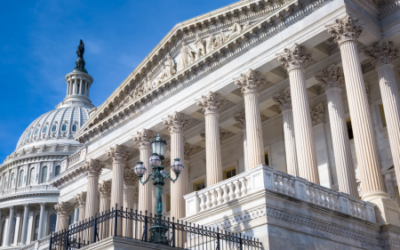Government rarely leads when it comes to technology innovation. That’s because the funding required is simply not available. However, governmental entities are finally moving into the next phase of IT modernization – mobile apps.

There are many interesting examples of how mobile apps are changing citizen services:
- The Department of Veterans Affairs (VA) is rolling out a mobile app that supports an online patient self-scheduling system. It’s now available for 99 sites and the VA says it will continue to develop more mobile capabilities.
- The city of Durham, N.C., and the county of Durham recently launched a joint mobile application called Durham One Call. Citizens will soon be able to submit service and public record requests directly to the city or county from a mobile device.
- The California Department of Education now provides an app that provides contact information, performance data and information about the state’s 10,000 public schools.
- The Maryland Health Benefit Exchange uses a mobile app to register individuals for open enrollment in the state’s Health Connection system. Already, more than one-third of the transactions come from smart phones.
- In Arkansas, citizens can now receive notifications related to property taxes, franchise tax payments, etc. through a mobile app.
But likely to be more interesting to government contractors are examples of where governmental entities plan to launch mobile apps in the near future.
- The Department of Veterans Affairs recently issued an RFI to gather information from industry related to the development of an app to provide indoor and outdoor wayfinding navigation at VA medical facilities. Potential users would be veterans, family members, visitors and staff.
- The San Francisco Municipal Transportation Agency plans to redesign its real-time customer information system and is surveying riders for input on what would help them reach destinations quicker and more efficiently. The agency hopes to improve ridership experience satisfaction by the use of a mobile app option.
- The city of San Antonio is seeking a mobile application solution to provide residents with location-based services. City officials want citizens to be able to access directions quickly and efficiently to public facilities and activities such as parks and city-sponsored events.
- In Utah, all liquor, wine and full-strength beer must be purchased from a state liquor store or package agency. That is somewhat unusual so the state hopes to make purchases easier through the use of a mobile app. The agency is researching the cost of developing a mobile app that will provide directions to stores and also let people know if the beverage of interest is in stock at a particular store.
The world is definitely changing and not only will mobile apps make citizen interaction with governmental entities more convenient, but the apps will also significantly reduce costs. Public employees who once were responsible for answering questions, handling requests and overseeing transactions will be less in demand because many of these tasks will be handled via the Internet as the digitization revolution continues to evolve.
SPI’s government market research shortens sales cycles and allows your sales team to focus on what they do best…selling. Learn more about their capabilities by contacting them today.






